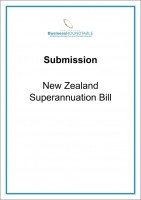
Submission: New Zealand Superannuation Bill
The pre-funding proposal is largely an accounting exercise with no direct economic impact on the retirement income problem. As now spelled out, it is essentially a tax-smoothing scheme. Read more


The pre-funding proposal is largely an accounting exercise with no direct economic impact on the retirement income problem. As now spelled out, it is essentially a tax-smoothing scheme. Read more
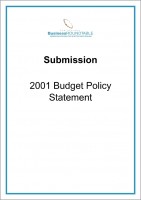
We have made submissions on successive governments' Budget Policy Statements since their inception. This is because we believe that fiscal policy and the disciplines introduced by the Fiscal Responsibility Act 1994 are important for sound economic management and the quality of the communications between the government and the wider community, particularly the investment community. Read more

The NZBR commends the government for undertaking this review of the regulatory framework for pipfruit exporting. The pipfruit exporting sector is one of the most heavily regulated commercial activities in New Zealand and a fundamental overhaul of the regulatory environment is required. Read more
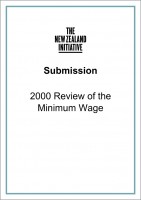
The Minimum Wage Act 1983 (the Act) states that the governor-general may prescribe by order in council minimum rates of wages payable to any class or classes of workers. The class or classes of workers are to be defined by reference to their ages. Read more

We have long regarded the existing legislation embodied in the Securities Amendment Act 1988 to be seriously deficient. No sound case was ever made for New Zealand's current insider trading law. Read more
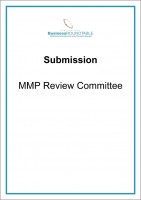
In this submission we strongly urge the Committee to support a further referendum on the electoral system, in accordance with item (c) of its terms of reference. Politicians and their parties have a strong self-interest in this issue and should not second-guess, pre-empt, obstruct or subvert the public's views on electoral arrangements. Read more

The NZBR has intensively researched the issue of takeovers regulation in the last 15 years. We have consulted many international experts in finance and economics. Read more
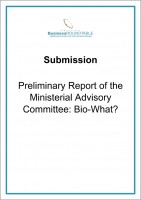
Bio-What? is an offshoot of the New Zealand Biodiversity Strategy. Read more
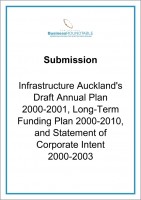
The Plan does not focus on funding public good activities. All passenger transport projects for which grant applications have been received since 1998 and are reported to have passed "legislative filters" are unambiguously private good activities. Read more

CER has, without doubt, been of significant benefit to New Zealand. There are, however, a number of outstanding areas for reform. Read more
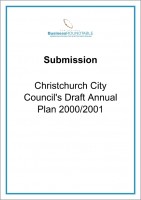
A prime concern of business organisations over the last few years has been the cumulative increases in the Council's expenditure, rates and compulsory charges as a consequence of its failure to focus on core activities, exit from other activities and implement more efficient funding arrangements. Unless the Council reconsiders its approach and adopts business organisations' suggestions, ratepayers will be confronted by continuing and unsustainable rate increases. Read more

The Employment Relations Bill raises two major concerns about government policy, one substantive and the other procedural. The substantive concern is the impact that the Bill will have on other areas of government policy including on price stability, unemployment, investment, the balance of payments, economic growth and the government's accounts. Read more

In section 2 of this submission we argue strongly against the Inquiry's interpretation of the government's objective for the telecommunications industry. In our view it is not consistent with the objective of achieving a dynamic, competitive and efficient industry. Read more

The abolition of the bulk funding of teacher salaries is by far the most important change and one for which no rational explanation is provided. We consider it to be a seriously retrograde step. Read more
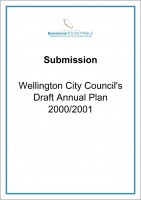
In submissions over the past few years business organisations have called on the Wellington City Council (the Council) to focus on its core business, exit from other activities and implement more efficient funding arrangements. Unless such policies are adopted, ratepayers will be confronted by continuing rate increases and Wellington City will be a less attractive city than otherwise to locate businesses. Read more